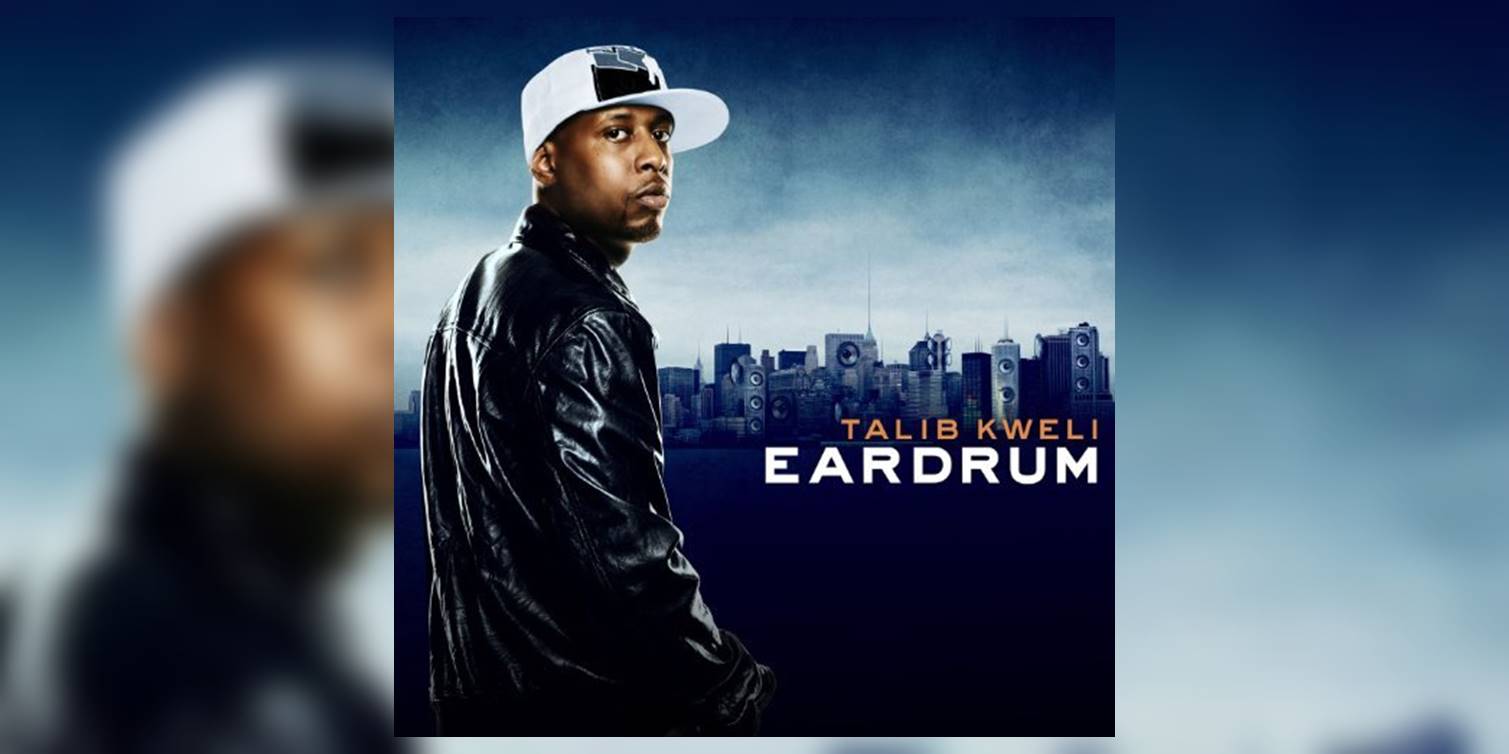Happy 10th Anniversary to Talib Kweli’s Eardrum, originally released August 21, 2007.
It’s too easy for a journalist to arbitrarily pick a year from the 44 or so in which hip-hop has existed and write at length about how much of a transitional period it was. It is, without a doubt, a genre constantly switching gears, but that doesn’t mean every year has been revolutionary.
The game didn’t shift much in 2007, but it was arguably a time when the creative energy that made the independent rap scene so vibrant started to wane. It was several years since the mid-late ‘90s golden era of New York underground hip-hop, largely defined by influencers like Stretch & Bobbito, Rawkus, Fondle'em, Dr. Octagon and MF DOOM. Within the next three years, Def Jux would call it quits, leaving labels like Rhymesayers to pick up the pieces and become the new forum for those with something left to say. For many artists who came up in that ‘90s scene it was hard to figure out exactly where they now stood, especially an artist who never fit in easily in the first place, Talib Kweli.
Alternative 'Eardrum' Album Artwork
There are no requirements for an artist to stick to one lane or conform to what people think their music should be like, but it is important to play to your audience. The records Kweli made from 1997 to 2000 may have been a lot more soulful than the dusty, “Independent as Fuck” rhetoric of Rawkus label mates Company Flow, but it was still rugged and raw hip-hop. His collaborations with Hi-Tek as Reflection Eternal and Mos Def as Black Star, and countless features on a run of 12" indie classics had turned him into an icon by the millennium. In later years Kweli would state that he was, in fact, a fan of Puffy and the shiny suit music that peers like El-P were rallying against. But for a time at least, Kweli was perceived as being part of the mission to attack the wack.
There was some surprise and backlash therefore when Kweli decided to take his debut solo album, 2002’s Quality, in a different direction. There were still hard tracks, but Kweli had by now been welcomed as a member of The Soulquarians, opting for heavy input from female vocalists on hooks and beats that showcased the neo-soul side of the mighty J Dilla. None of this was necessarily a bad thing, as Quality does have many highlights. It just wasn’t perhaps what a lot of people were expecting. A Tribe Called Quest had done something similar on 1998’s The Love Movement, but Tribe is Tribe. For Kweli it was a brave move. The follow-up in 2004, The Beautiful Struggle, was an even bigger shift towards the soulful, with collaborations alongside heavyweight R&B artists like Mary J. Blige, Faith Evans and John Legend.
Released nearly three years later in August 2007, Eardrum looked to be a return to where Kweli had started, at least on paper. There were beats by Madlib (“Everything Man,” “Eat to Live,” “Soon The New Day”) and Pete Rock (“Holy Moly,” “Stay Around”), and guest features from KRS-ONE and Jean Grae. The world had lost Dilla the previous year, but his spirit and influence still ran through Eardrum thanks to production from Terrace Martin on “Give ‘Em Hell” and Karriem Riggins on the bonus track “Take It Back.”
The track list was also peppered with names that even fans of the first two albums would maybe have been surprised by, namely Norah Jones on “Soon The New Day” and Justin Timberlake on “The Nature.”
Again, there’s nothing wrong with making an album wide-reaching and expansive, but it’s often hard to tell exactly for whom Eardrum is intended. The average rap fan probably didn’t want to listen to Timberlake, and anyone interested in Jones likely didn’t care much for the track with Strong Arm Steady, “Go With Us.”
There’s nevertheless still a lot to like about Eardrum, mostly in the places where you’d expect. The aggressive “Say Something” sees Kweli spit sharp, focused lyrics over a beat that samples the same Thomas Bell Orchestra song, “A Theme for L.A.’s Team,” that Marley Marl and K-Def used in 1993 for Lords of the Underground’s “Funky Child.” Rather ironically, “Say Something” is produced by one of the most mainstream artists of the last 20 years, will.i.am. Having KRS-ONE to spar against on “The Perfect Beat” also served to bring out the best in both emcees, not so much a veteran rapper passing the baton to the next generation, more like a newer dog teaching an old one some tricks.
Kweli always sounds brilliant when in his comfort zone: deep in rhyme and putting other rappers on blast. It begs the question about why he then opted to leave it for sprawling but ultimately syrupy songs like “The Nature,” where he often doesn’t sound comfortable at all.
It may not work perfectly, but it’s hard to deny that Eardrum is, at the very least, eclectic and ambitious. In 2004, Kanye West rapped on “Last Call” about his ear for pairing distinctly-different rappers on the same song, naming Kweli as an example: “Call him Kwa-li or Kwe-li, I put him on songs with Jay-Z.” Kweli went way beyond that concept on Eardrum, because there can’t be many other albums where you’ll find Norah Jones and Bun B in the space of a few tracks. For that alone the album should be celebrated.
Talib Kweli today spends a lot of time arguing with Twitter trolls, but does still make music that can be great, albeit sometimes still with an identity crisis.
LISTEN:


